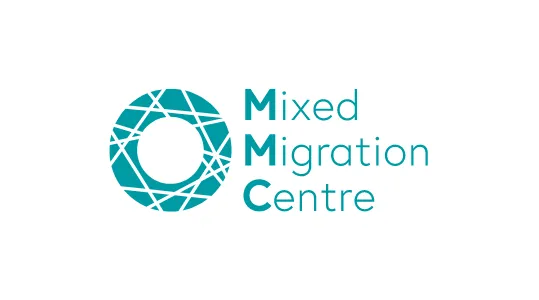Quarterly Mixed Migration Update Asia and the Pacific, Quarter 4, 2022
08 February 2023

This Quarterly Mixed Migration Update (QMMU) covers Asia and the Pacific. The core countries of focus for this region are Afghanistan, Bangladesh, India, Indonesia, Malaysia, Myanmar, Nepal, Sri Lanka, Thailand, The Philippines, Türkiye, Australia, and New Zealand. Depending on the quarterly trends and migration-related updates, more attention may be given to any of the countries over the rest.
The QMMUs offer a quarterly update on new trends and dynamics related to mixed migration and relevant policy developments in the region. These updates are based on a compilation of a wide range of secondary (data) sources, brought together within a regional framework and applying a mixed migration analytical lens. Similar QMMUs are available for all MMC regions.
Key Updates
- Migration options for Afghans are shrinking: Migration and resettlement pathways for Afghans have been constrained by multiple challenges, including restricted mobility within and across Afghan borders, increased crackdowns in Pakistan, the reception crisis in Belgium, and the Canadian sponsorship quota system, among others.
- Andaman Sea crossings rise sixfold in 2022 when compared to 2021: UNHCR has drawn attention to a “dramatic increase” in the number of people – predominantly Rohingya – attempting dangerous Andaman Sea crossings in 2022. Several hundred are feared dead or missing.
- New pathways in the pipeline for Bangladeshi migrant workers: The Bangladesh government has entered into talks with the European Union, Libya, and Russia towards establishing potential pathways for Bangladeshi migrant workers.
- There is a need for better policy and responses to climate-induced human mobility: The increased intensity and frequency of natural disasters driven by climate change has uprooted millions in Bangladesh and Pakistan, yet little progress has been made to address the issue.
- Anti-Torture Act passed and National Screening Mechanism criteria outlined in Thailand: While many remain sceptical over aspects of implementation, the passage of the Anti-Torture Act and the establishment of criteria for the National Screening Mechanism signify positive progress in instituting protection frameworks for refugees and asylum seekers in Thailand.
- Detention conditions in Australia remain dire: Criticism of a new agreement between the Australian government and the Management and Training Corporation – a US based private prison operator – have increased as the government moved to block the UN from accessing detention facilities, particularly sections that provide mental healthcare assistance.
View the original
Announcements
28 February 2025
Asian NGO Network on National Human Rights Institutions , CSO Working Group on Independent National Human Rights Institution (Burma/Myanmar)
Open letter: Removal of the membership of the dis-accredited Myanmar National Human Rights Commission from the Southeast Asia National Human Rights Institution Forum
25 February 2025
သတင်းထုတ်ပြန်ကြေညာချက် – တရားမျှတမှုဆီရှေးရှုလျက် အာဂျင်တီးနားတရားရုံး၏ ဖမ်းဝရမ်းထုတ်ပြန်မှုကို ကြိုဆိုထောက်ခံ
25 February 2025
Press Statement: Argentine Court’s arrest warrants are welcome progress towards justice
21 February 2025
CSO Working Group on Independent National Human Rights Institution (Burma/Myanmar) , Asian NGO Network on National Human Rights Institutions (ANNI)
Open letter: Removal of the membership of the dis-accredited Myanmar National Human Rights Commission from the Asia Pacific Forum on National Human Rights Institutions

Progressive Voice is a participatory rights-based policy research and advocacy organization rooted in civil society, that maintains strong networks and relationships with grassroots organizations and community-based organizations throughout Myanmar. It acts as a bridge to the international community and international policymakers by amplifying voices from the ground, and advocating for a rights-based policy narrative.